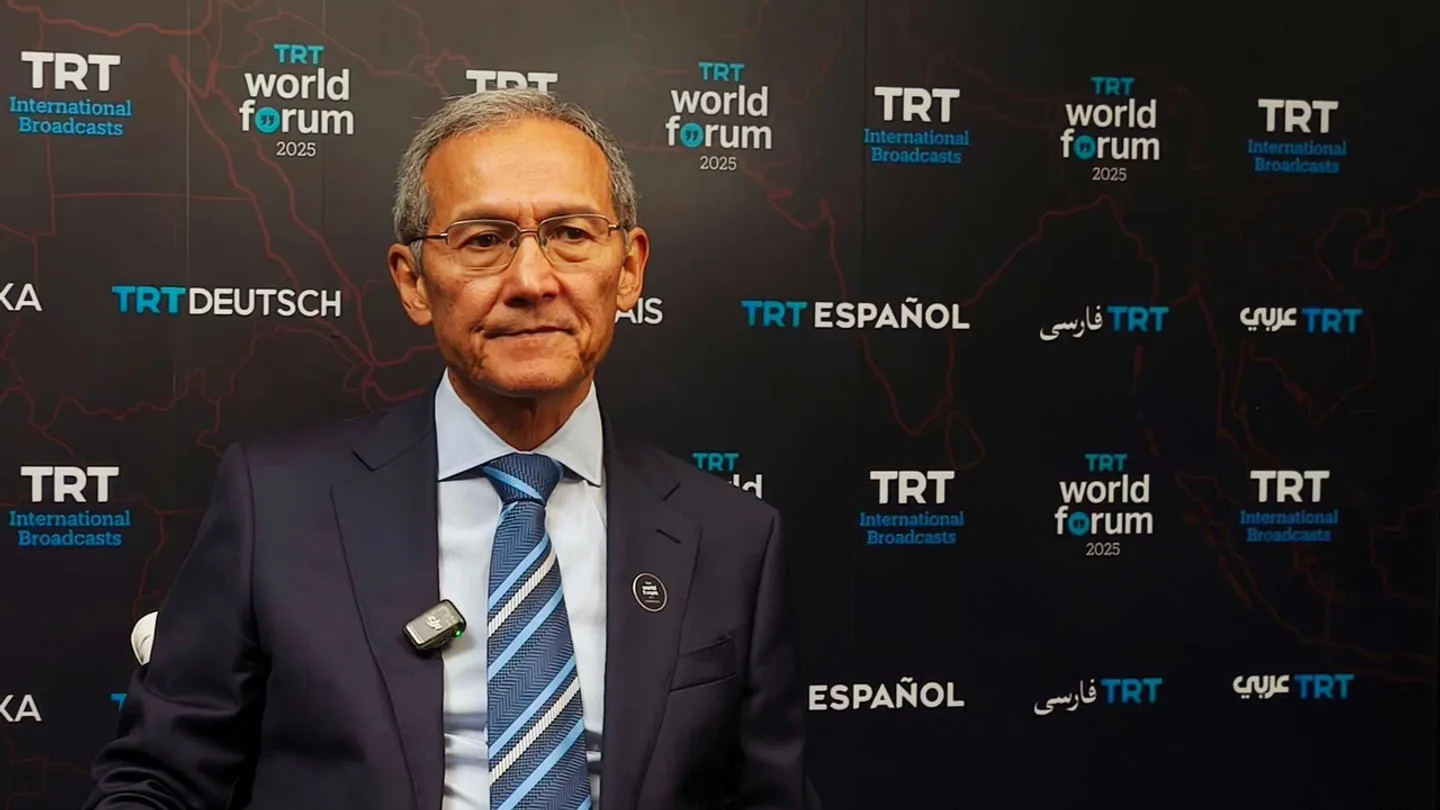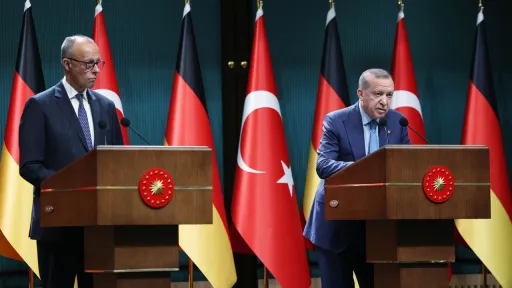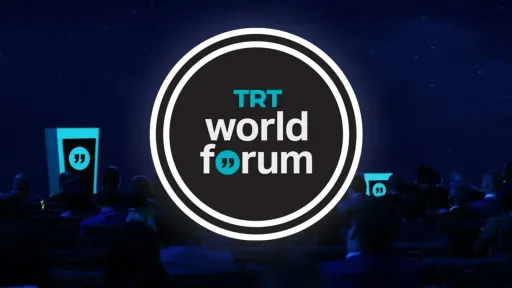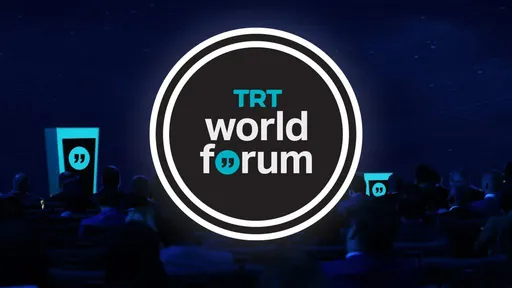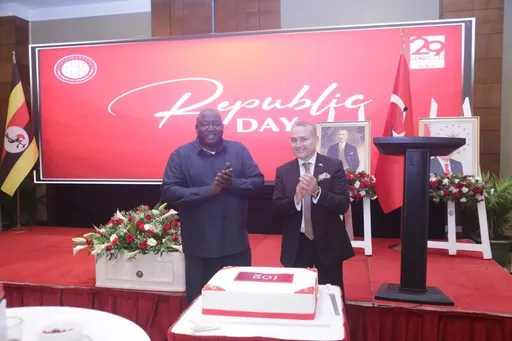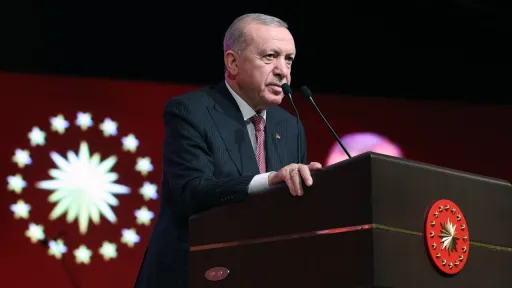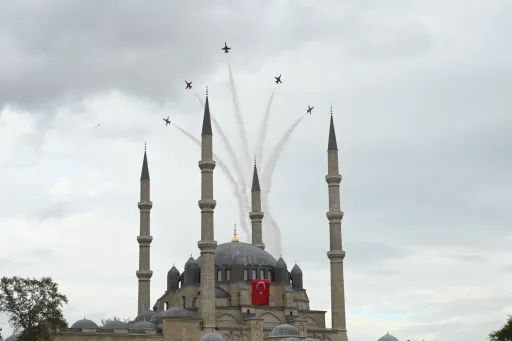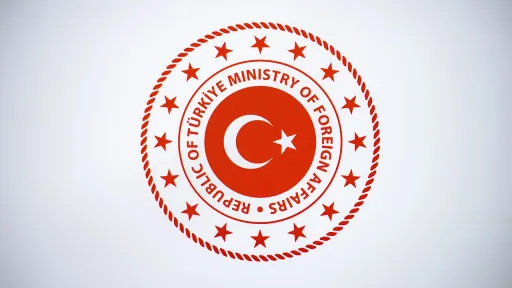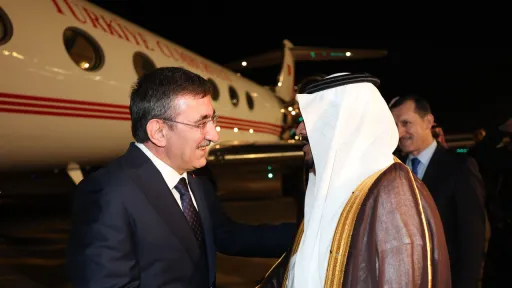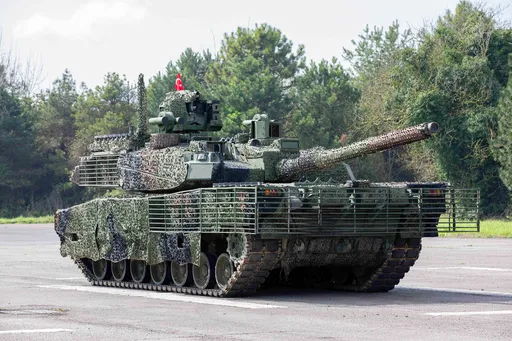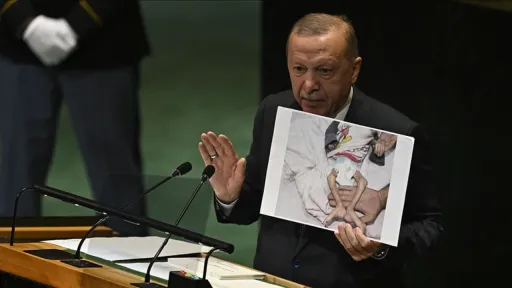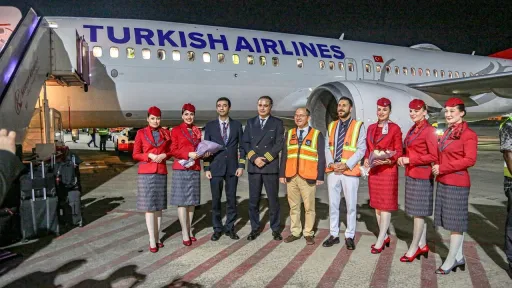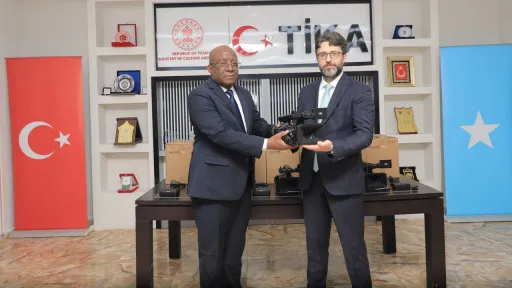As the curtains fell on the 9th TRT World Forum in Istanbul on Saturday, former Kyrgyz Prime Minister Djoomart Otorbaev hailed Türkiye’s growing diplomatic and cultural influence, describing it as a pivotal bridge “from the European continent into the Asian continent” — and a nation increasingly shaping the contours of the emerging world order.
Speaking to TRT World on the sidelines of the forum’s concluding day, Otorbaev said Türkiye’s proactive diplomacy — from mediating in the Russia-Ukraine conflict to its humanitarian outreach amid the Gaza crisis — has positioned it as a key regional stabiliser and a credible voice of the Global South.
“Türkiye is becoming a more influential country overall, given its unique geographical location,” Otorbaev said. “It borders Europe but also serves as a gateway from the European continent into Asia. In this unique situation, Türkiye is becoming more and more influential.”
In Otorbaev’s view, Türkiye’s growing influence — from global diplomacy to the digital economy — embodies the very spirit of the “Global Reset” theme that was debated at this year’s TRT World Forum.
“Türkiye’s voice is increasingly being heard — not only as a mediator, but as a bridge between regions, civilisations, and ideas,” he said.
Driving a new era of growth across the Turkic world
Otorbaev also welcomed Ankara’s recent decision to simplify work permits for citizens of Turkic-speaking states, calling it “a very important step in bringing our countries closer together — to build trust and improve the quality of our interaction.”
“Türkiye is playing a constructive role within the Organisation of Turkic States, strengthening friendship, improving economic relationships, and enhancing people-to-people exchanges,” he added.
Otorbaev, who participated in a TRT World Forum session on ‘Cultural Diplomacy and Shared Identity in Central Asia: Pathways to Regional Engagement and Connectivity’, also stressed that closer economic ties among Turkic nations must be complemented by deeper cultural connections.
“While our economic relationship is developing, we must also know each other culturally,” he said. “Because we are geographically far from each other, it’s not easy to reach one another. But with the efforts of each state, we are becoming closer.”
He said initiatives such as joint festivals, educational programmes, and cultural exchanges under the Organisation of Turkic States will play an important role in promoting regional cooperation and stability. “Institutionalising cultural exchange will bring effective results very soon,” he added.
While praising Türkiye’s diplomatic activism, Otorbaev underlined that the next stage of the country’s rise must be rooted in science, technology, and innovation.
“In the current world, becoming a leader in innovation and the digital economy is crucial to becoming a global leader,” he said. “Türkiye is already playing an important role — with many educational institutions, scientific discoveries, and new products being created here. It has a good demography and a digitally driven young generation, which will bring more tangible results in the future.”
Global reset and the return of G2 diplomacy
Reflecting on the forum’s central theme — “The Global Reset: From the Old Order to New Realities” — Otorbaev agreed that US President Donald Trump is likely the biggest catalyst of hastening this reset and driving this transformation.
“The US is the biggest and most influential country in the world — economically, militarily, and in terms of soft power,” he said. “Nobody can ignore what’s happening in the US, including its internal politics and foreign policy.”
He noted that despite Trump’s ‘Make America Great Again’ (MAGA) slogan, his renewed global engagement in his second term was shaping international relations.
“I hope his activity and ideas will play an important role in making our world a fairer place for all humanity to live in,” Otorbaev said, revealing that on November 6, five Central Asian leaders will travel to Washington for a C5+1 summit with President Trump.
Otorbaev also highlighted the significance of the recent Trump–Xi Jinping meeting in Busan, South Korea, which was described by the US President as “G2” summit — a term evoking the idea of the United States and China as co-leaders of global affairs.
“G2 is the most important dialogue on our planet,” the former Kyrgyz prime minister remarked.
“The two biggest countries — by far, economically and in terms of soft power — really need dialogue. Very often, their positions are diametrically different, but dialogue always brings understanding and ideas on how to make relationships closer and more secure.”
Without such communication, he warned, “there could be dangerous developments.”
He called the Busan summit “a step in the right direction,” noting that both Washington and Beijing described it as productive. “Further dialogue will be required — both through summits and agency-level cooperation — so that our world becomes less tense as a result,” he said.
Asked whether the Global South would accept a G2-dominated world, Otorbaev argued that global governance should not be seen as a zero-sum game.
“It should not be either-or. It should be both,” he emphasised. “We need dialogue in G2, G7, G20, as well as other formats like the Shanghai Cooperation Organisation (SCO) and BRICS. The more dialogues around the world, the better and safer we will be.”
He expressed support for Chinese President Xi Jinping’s Global Governance Initiative, and echoed Turkish President Recep Tayyip Erdogan’s longstanding call for UN reform under the principle that “The world is bigger than five.”
“The architecture of the UN was built in 1945 as a result of the Second World War,” Otorbaev said. “But the world has changed. The Security Council must be enlarged. More Global South countries must have a voice; otherwise, the UN structure will not be as efficient as we all want.”
